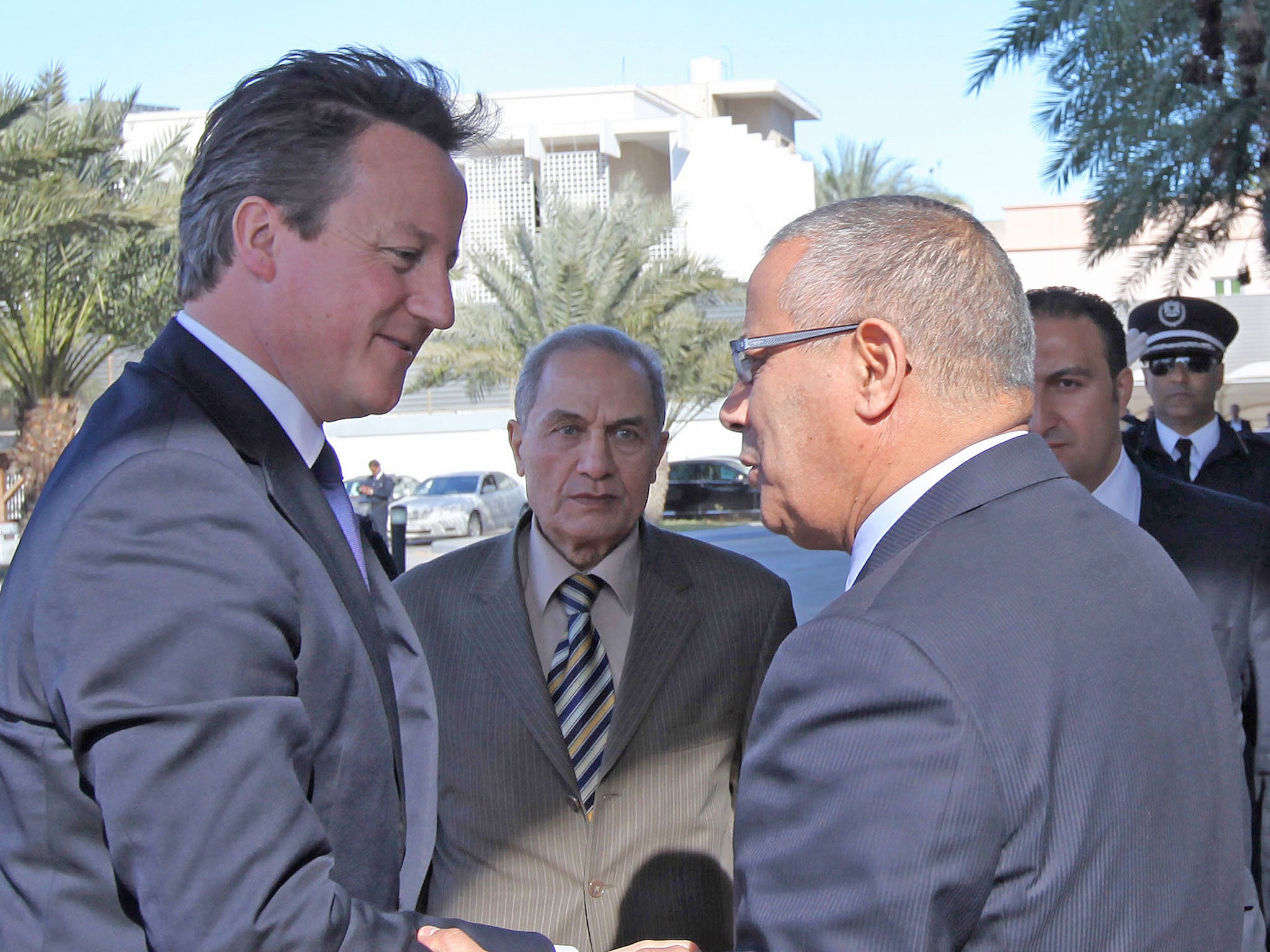Indyplus more: Lockerbie bombing police to visit Libya for first time
Announcement follows talks between David Cameron and Libyan prime minister Ali Zeidan

Your support helps us to tell the story
From reproductive rights to climate change to Big Tech, The Independent is on the ground when the story is developing. Whether it's investigating the financials of Elon Musk's pro-Trump PAC or producing our latest documentary, 'The A Word', which shines a light on the American women fighting for reproductive rights, we know how important it is to parse out the facts from the messaging.
At such a critical moment in US history, we need reporters on the ground. Your donation allows us to keep sending journalists to speak to both sides of the story.
The Independent is trusted by Americans across the entire political spectrum. And unlike many other quality news outlets, we choose not to lock Americans out of our reporting and analysis with paywalls. We believe quality journalism should be available to everyone, paid for by those who can afford it.
Your support makes all the difference.By James Tapsfield, Cahal Milmo
British police investigating the 1988 Lockerbie bombing are to visit Libya for the first time.
Following talks in Tripoli with Libyan prime minister Ali Zeidan, David Cameron said officers from the Dumfries and Galloway force had been granted permission to travel to the country.
"I am delighted that the Dumfries and Galloway Police team will be able to visit your country to look into the issues around the Lockerbie bombing," he told a joint news conference.
The breakthrough follows months of behind-the-scenes negotiations with the authorities in Tripoli, and detectives are now expected to travel to the country next month.
Although police investigating the murder of WPc Yvonne Fletcher - who was killed by shots fired from the Libyan People's Bureau in London in 1984 - have visited three times since the revolution in 2011, similar access had not previously been given to the Lockerbie team.
The only person to have been convicted of the attack, Libyan agent Abdelbaset al-Megrahi, died last year of prostate cancer, having been released by the Scottish government on compassionate grounds after serving eight years of a life sentence.
Dumfries and Galloway Police want to investigate whether anyone else was involved in the attack, while the families of some of the victims remain convinced that it was nothing to do with Megrahi and he was an innocent man.
A spokesman for the force said: "It's the first time since the fall of the previous Libyan regime that officers will have the opportunity to make further inquiries in the country."
Two hundred and seventy people died when Pan Am flight 103 exploded over Lockerbie on December 21 1988 - including all 259 people on board and 11 town residents - in what remains the UK's worst terrorist atrocity.
Following the overthrow of Colonel Muammar Gaddafi, a formal request was sent to the Libyan government in February last year requesting access to the country for police and prosecutors investigating the bombing.
The request was followed by a meeting in London between Scotland's top law officer the Lord Advocate, Frank Mulholland QC, and the Chief Constable of Dumfries and Galloway Constabulary, Pat Shearer, and the UK families of the victims.
In December last year, the Libyan administration said it was preparing to release all files relating to the bombing.
A Crown Office spokesman said: "The Lord Advocate welcomes Libyan support for the ongoing investigation.
"As this is a live investigation it would not be appropriate to comment any further."
But Robert Forrester, secretary of the Justice for Megrahi campaign group, which wants an independent inquiry to look again at the conviction, dismissed the prospect of further investigations.
"As far as I am concerned, the conviction was a gross miscarriage of justice and the efforts the police and Crown Office are making to locate other Libyans who may have colluded in the bringing down of Pan Am flight 103 amount to little more than eye-wash," he said.
"I think it's a thoroughly cynical attempt to deceive the public into thinking the conviction was justified."
The Prime Minister earlier today used a surprise visit to Libya to make his second pledge in 24 hours of closer security ties between Britain and North African countries on the newly declared front line in the battle against Islamic extremism.
Hot on the heels of his announcement of a new security pact with Algeria, Mr Cameron arrived in the Libyan capital of Tripoli this morning to pledge that Britain will provide training and advice for police and the army to bolster the country's recovery from decades of dictatorship.
The Prime Minister said he wanted to do more to help the new Libyan government, which is facing continuing problems with the disparate militias that helped depose Muammar Gaddafi amid a continuing struggle to establish a functioning democracy.
The visit to Tripoli, which took place despite to the British embassy and consulates in Libya, included a walkabout of the city’s Martyrs’ Square amid heavy security after Mr Cameron had arrived from the airport in a 16-car convoy.
On an earlier tour of a police training college, the Prime Minister recalled the trip he made to Libya shortly after the toppling of Colonel Gaddafi in September 2011, said: “I will never forget the scenes I saw in Tripoli and Benghazi. The British people want to stand with you and help you deliver the greater security that Libya needs. So we have offered training and support from our police and our military. We look forward to working together in the years ahead.”
Mr Cameron is due to hold talks Libya’s recently-appointed prime minister, Ali Zaidan, who is seeking to build a government of national unity and disband the militias. He will also meet President Megarief while in the country.
Join our commenting forum
Join thought-provoking conversations, follow other Independent readers and see their replies
Comments